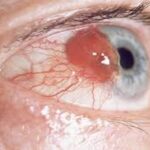India
healthysoch
New Delhi, February 14, 2021:
Ms Payden, Deputy WHO Representative to India lauded the country’s National Viral Hepatitis Control Program that has 91% coverage and Ayushman Bharat for providing cancer treatment.
Healthcare experts emphasized that cancer cannot be treated in silos and multifactorial improvement in public healthcare is needed for a ‘continuum of care’ approach.
· Cancer is killing 1900 people every day and ICMR’s National Cancer Registry Programme shows cancer cases in India are rising. The summit is powered by Manipal Hospitals, Dwarka, New Delhi.
New Delhi, 13th Feb 2021: Global health experts, including the Deputy WHO Representative to India, at the 2nd Cancer E-summit today, lauded the country’s efforts to prevent canher and emphasized the need to break the silos of cancer care and address it with a ‘continuum of care’ approach. The summit, organised by the Integrated Health and Wellbeing (IHW) Council, is powered by Manipal Hospitals, Dwarka, New Delhi.
“Cancer leaves a catastrophic impact on people and about half of the cancer cases can be prevented. Evidence has shown that tobacco causes 27% of all cancer-related deaths. Viral infections such as hepatitis and human papillomavirus (HPV) cause about 20% in low-and middle-income countries (LMICs). India’s National Viral Hepatitis Control Program covers 91% of its population with hepatitis B immunization and that, along with providing cancer treatment through Ayushman Bharat, is commendable. A robust monitoring and evaluation of programmes and investment in cancer surveillance is important – India’s national cancer registry programme needs to be strengthened as it currently covers only 12% of the population,” says Ms Payden, Deputy WHO Representative to India.
“We are glad to have India as a participating country in the WHO Global Initiative on Childhood Cancer. WHO advocates continuum of care for cancer and has adopted a global strategy to accelerate cervical cancer elimination that sets a 90-70-90 targets by 2030: 90% of girls fully vaccinated with the HPV vaccine by the age of 15; 70% of women screened by the age of 35, and again by the age of 45; and 90% of women identified with cervical disease receive treatment,” she adds.
Noting the changing trends in cancer prevalence, Padma Bhushan awardee Dr. Suresh H Advani, Consultant Oncologist, Jaslok Hospital, says, “The Bombay Cancer registry shows there is a 2% increase in breast cancer cases every year. On the other hand, cervical cancer cases in major cities are dropping. However, the vaccination to prevent infection in India is quite universal for hepatitis B but so much for HPV vaccines. We see a poor trend in follow-up visits and despite widespread information availability, there is no let down in tobacco consumption.”
“”There are more than 230 cancer centers, research institutes, patient groups and charitable institutions that are currently members of the national cancer grid. But we need to ensure quality cancer care is available in the hinterlands of our country as social determinants of health are important. This year’s budget is promising as it shows the government’s focus on healthcare and I am hopeful it will bear fruit in a few years,” says Dr C S Pramesh, Director, Tata Memorial Hospital, Mumbai and the convener of the National Cancer Grid.
As millions across the nation lose the battle of life against the dreadful disease cancer, it is high time to combat this with an integrated and comprehensive approach. The changing environmental conditions, new lifestyle patterns, smoking, and consumption of tobacco products among youth in India have been increasing the susceptibility to cancer. Smoking and consumption of tobacco products are the main reasons for cancers and we need to address this issue urgently by creating awareness and educating people on this menace. The cancer awareness campaign and educating youth need to start at the grass-roots level.
Creating awareness about the disease is the key to leveraging the benefits of breakthroughs also. We need to emphasize preventive measures and early detection. Large scale screening both in rural as well as urban areas can save thousands of lives as pre-cancer or early-stage cancer are curable. With timely intervention, even advanced-stage cancers can be clinically managed in a better way. Mr Raman Bhaskar, Hospital Director, HCMCT Manipal Hospitals, New Delhi
“Until the beginning of the millennium, cancer was considered a western disease in India; standing at the threshold of its third decade, we know how mistaken the presumption was. Cancer is killing 1900 people every day and ICMR’s National Cancer Registry Programme shows cancer cases in India are rising – by 2026, the total number of new cancer cases annually in men will rise to 9 lakh 34 thousand while that in women will jump from a little more than 6 lakh to 9 lakh 35 thousand. The pandemic has hit cancer patients with a double whammy – hospitals were shut as their weak immunity made cancer patients fear getting COVID-19 infection easily and preventive screening came to a halt. Estimates show that the lockdown and travel restrictions may have allowed 1 lakh cases every month go undetected. IHW Council will not leave any stone unturned and will make sustained efforts to help cancer patients,” says Mr. Kamal Narayan, CEO, IHW Council.
Dr. Anil D’Cruz, President, The Union for International Cancer Control (UICC), says, “Out of 3 patients diagnosed with cancer, 2 succumb in India while in the West, only 1 succumb to cancer. Cancer cannot be treated in silos; we need multifactorial improvement in public healthcare and must have a diagonal and vertical approach to healthcare for cancer. In the first, we must strengthen the primary care that will take care of all non-communicable diseases, including cancer while in the second, we must strengthen our centres of excellence.”
“With private health players taking cancer care to tier II cities, the cancer care scenario in India has changed a lot. Ayushman Bharat has helped the poor to access care and digitization will help further. The ‘missing middle’ is the problem and the government is making efforts in that direction. We are partnering with various agencies to make innovation available to more people,” says Mr. Saumil Mody, Oncology General Manager, Novartis Oncology India.
Director, Tata Memorial Hospital, Mumbai; Dr Zareen Delawar Hussain, Managing Director and CEO, Integro Pharmaceutical & General Secretary, Palliative Care Society, Bangladesh; Raman Bhaskar, Hospital Director, Manipal Hospitals, Dwarka, New Delhi; Dr Bhawna Sirohi, Lead – Medical Oncologist, Apollo Proton Cancer Centre, Chennai; Mr Vibhav Garg, Director-Health Economics & Govt Affairs , India HUB & ASEAN, Boston Scientific; among others also joined the day-long virtual summit.
healthysoch







